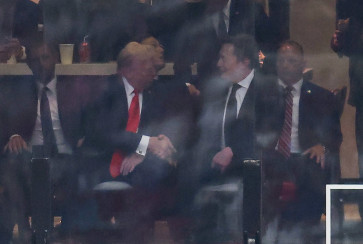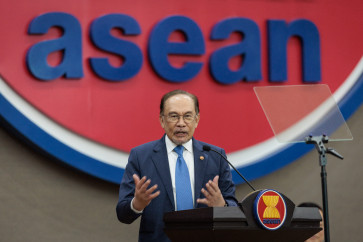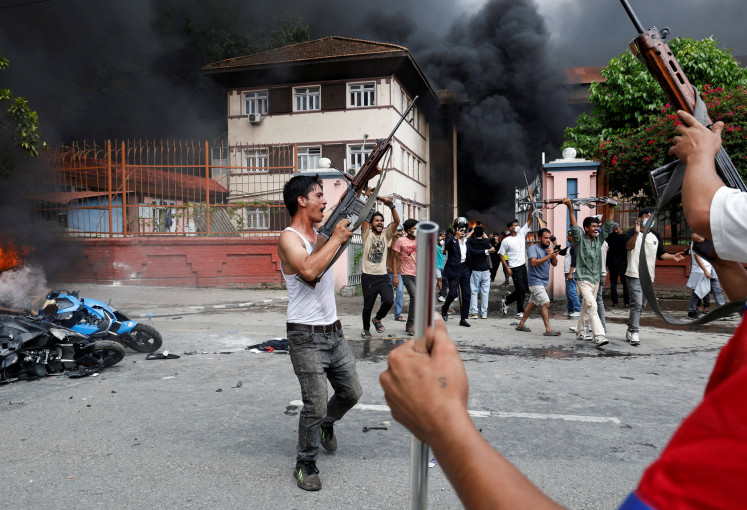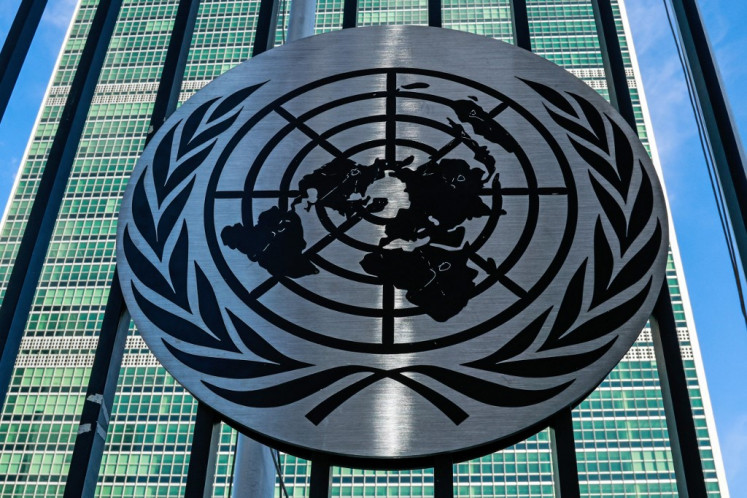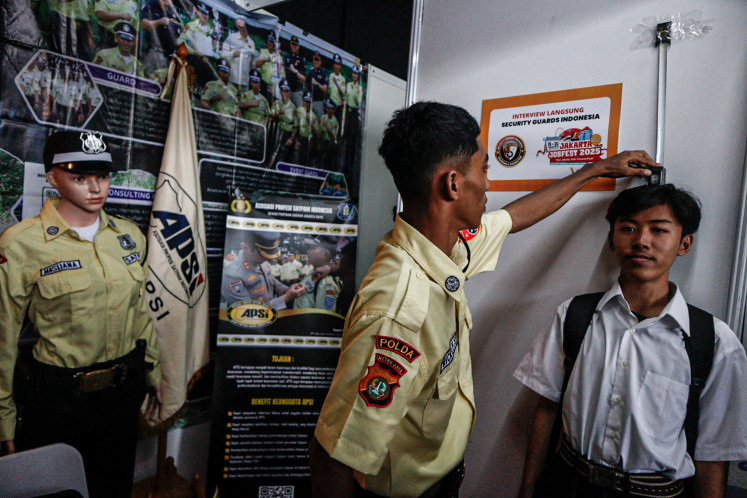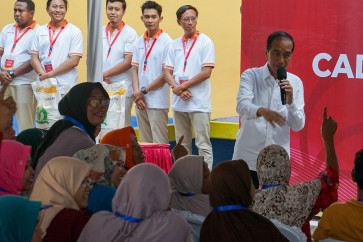Popular Reads
Top Results
Can't find what you're looking for?
View all search resultsPopular Reads
Top Results
Can't find what you're looking for?
View all search resultsDoes ideological politics resonate only with the upper middle class?
The assumption that ideological politics is confined to voters of the higher societal classes risks marginalizing the perspectives and concerns of a significant portion of the population and further, limits the inclusiveness of political discourse.
Change text size
Gift Premium Articles
to Anyone
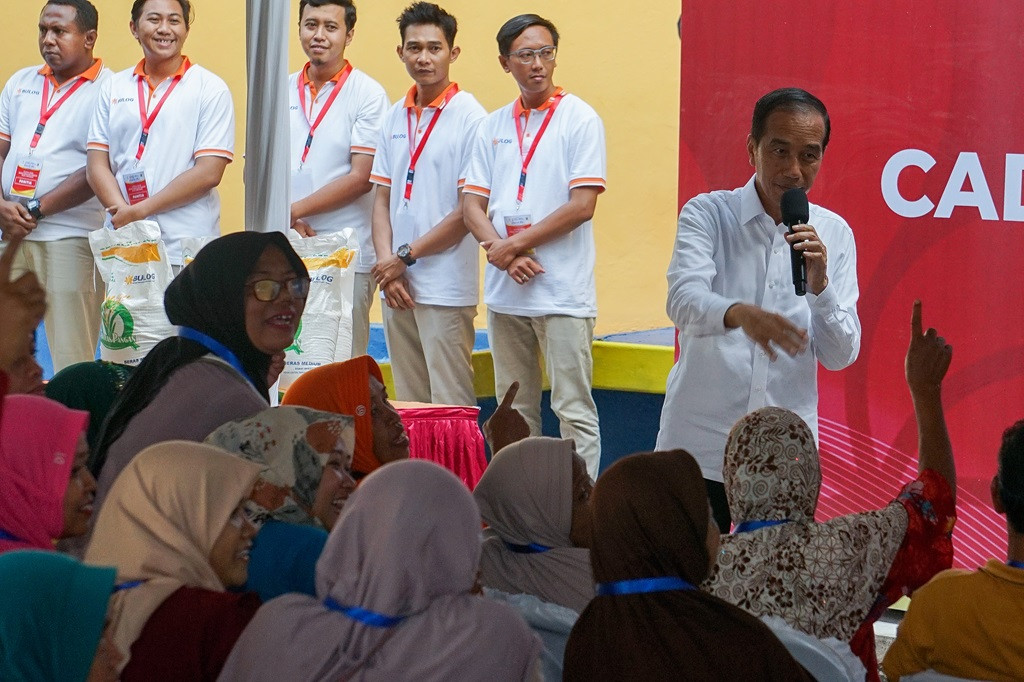 President Joko “Jokowi“ Widodo (right, with mic) talks to an audience member on Dec. 13, 2023 at an event in Pekalongan, Central Java, where he symbolically distributed 10,000 kilograms of rice to 1,000 local families while on an inspection visit to the local State Logistic Agency (Bulog) warehouse. (Antara/Harviyan Perdana Putra)
President Joko “Jokowi“ Widodo (right, with mic) talks to an audience member on Dec. 13, 2023 at an event in Pekalongan, Central Java, where he symbolically distributed 10,000 kilograms of rice to 1,000 local families while on an inspection visit to the local State Logistic Agency (Bulog) warehouse. (Antara/Harviyan Perdana Putra)

As Indonesia gears up for the election, the fervor surrounding the presidential debates has intensified in parallel with the public’s increasing engagement in political discourse.
A prevailing assumption suggests that political preferences in Indonesia are intricately linked to social class. The middle to upper classes, characterized by higher educational attainment, tend to prioritize ideological politics, emphasizing values such as justice, democracy, human rights and the rule of law when evaluating candidates.
Conversely, the lower middle class, with more modest educational backgrounds, might find themselves drawn to populist campaign strategies, including the direct cash transfer (BLT) program as part of social assistance (bansos), religious affiliations or a candidate’s charisma.
This general view posits that these factors play a pivotal role in influencing the electoral choices of individuals, particularly those belonging to the lower socioeconomic strata. Consequently, this belief in the efficacy of populist strategies may embolden certain presidential candidates, even if it means compromising democratic principles, manipulating constitutional norms or overlooking egregious records on human rights, identity politics and environmental issues.
This raises the question of whether the allure of ideological politics is confined to a specific demographic, primarily the upper middle class, or if it resonates beyond such boundaries.
Arguably, the confidence candidates have displayed in employing nonideological tactics underscores a belief that a significant portion of the electorate, particularly those without high levels of education, may not be as concerned with matters such as justice, democracy or human rights. It is likely that the appeal of immediate benefits, such as financial assistance or material goods, overshadows the nuanced discussions surrounding governance and societal values for a considerable segment of the population.

In a country where less than 17 percent of the population has university-level education, it becomes apparent that the majority of Indonesian voters may not be swayed by the nuances of ideological politics.


